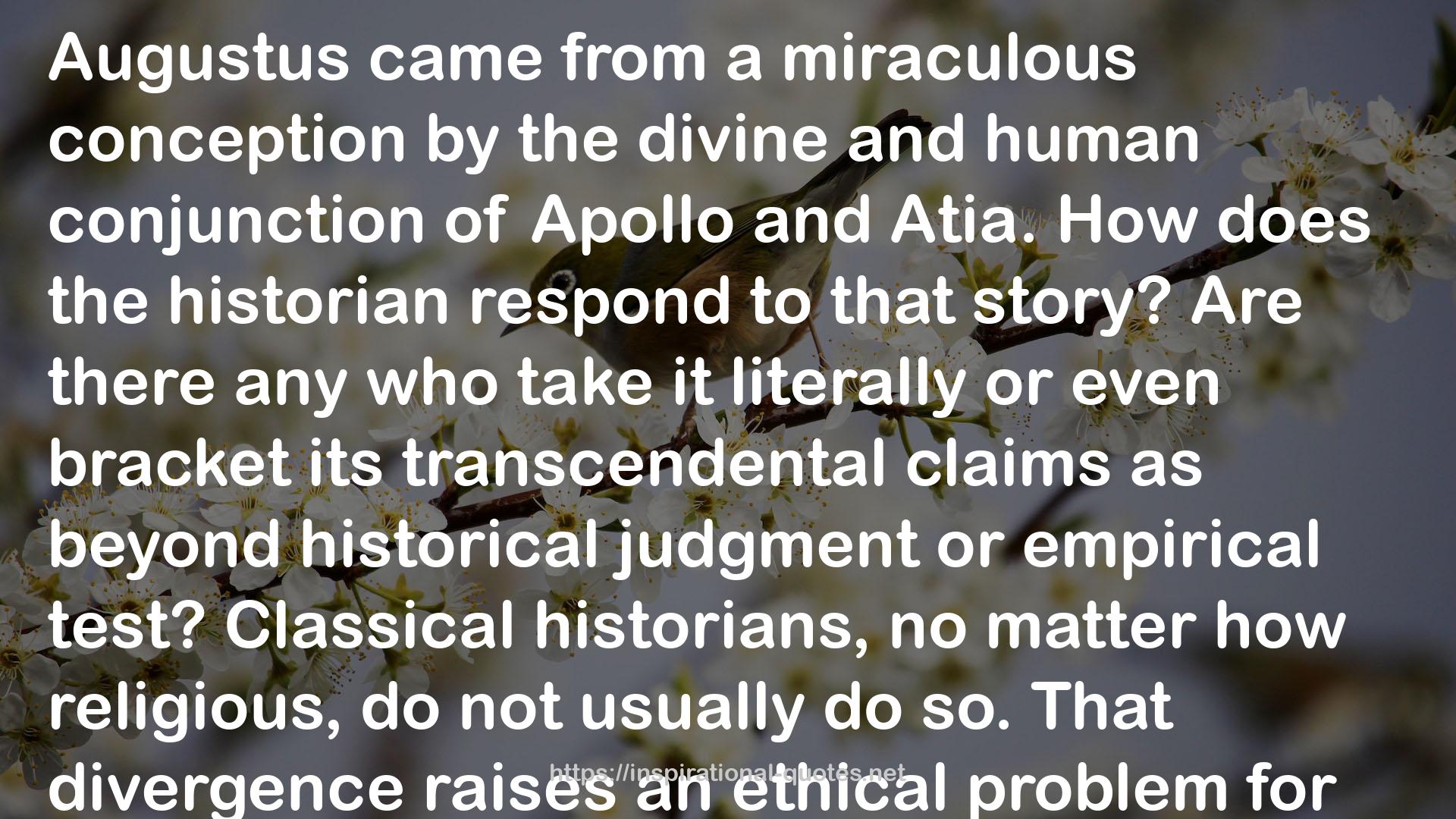" Augustus came from a miraculous conception by the divine and human conjunction of Apollo and Atia. How does the historian respond to that story? Are there any who take it literally or even bracket its transcendental claims as beyond historical judgment or empirical test? Classical historians, no matter how religious, do not usually do so. That divergence raises an ethical problem for me. Either all such divine conceptions, from Alexander to Augustus and from the Christ to the Buddha, should be accepted literally and miraculously or all of them should be accepted metaphorically and theologically. It is not morally acceptable to say directly and openly that our story is truth but yours is myth; ours is history but yours is lie. It is even less morally acceptable to say that indirectly and covertly by manufacturing defensive or protective strategies that apply only to one’s own story. This, then, "
― John Dominic Crossan , The John Dominic Crossan Essential Set: Jesus: A Revolutionary Biography, The Birth of Christianity, The Power of Parable, and The Greatest Prayer
